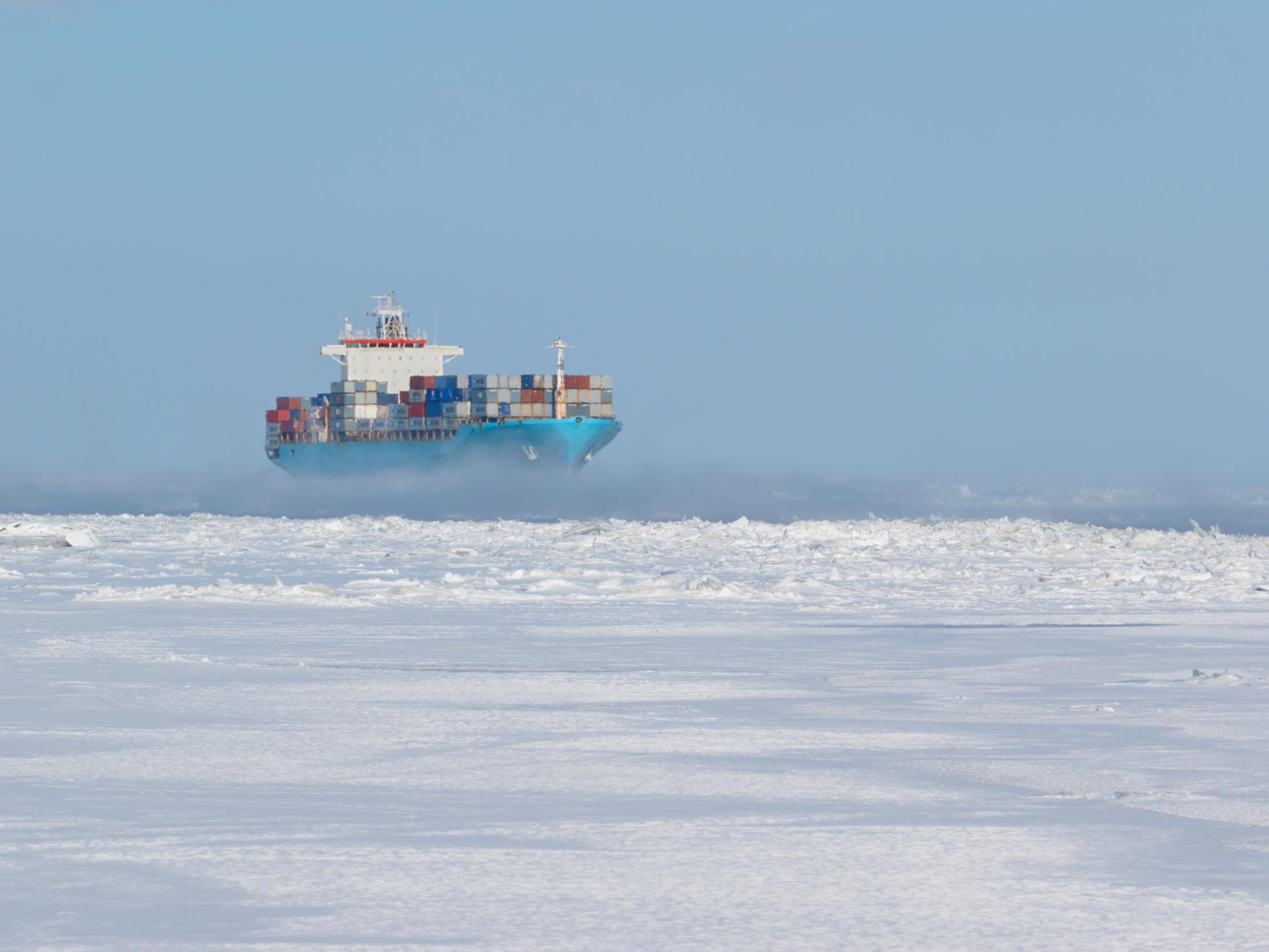The scramble for polar regions: Trading routes mustn’t carve up our last wilderness
Owners of cruise liners, trawlers and mining companies are licking their lips at the thought of exploiting Arctic riches

Ice in the Earth’s polar regions is rapidly melting and pristine ecosystems are being pulled apart at the seam.
Not only is this a sad story of vast environmental loss, ice melt is also opening up parts of the world that were previously inaccessible.
Owners of cruise liners, trawlers and mining companies are licking their lips at the thought of exploiting its riches for short-term economic gain.
Countries are already trying to carve up the seafloor, driven by a thirst for oil, gas and mineral resources.
Scientists such as Alex Rogers, professor of conservation at the University of Oxford, are concerned that if these regions are not managed correctly, the double whammy of climate change and human interference could send precious, endemic ecosystems into a spiral of decline.
In a piece for The Conversation, he wrote: “Let’s not make things worse by treating the polar oceans as a burgeoning economic resource. Instead, let’s give the life they contain the respect it deserves.”
One of the most obvious risks is the opening up of the Northwest Passage between the Atlantic and northwest Pacific. There is a massive amount of interest in using this as a commercial route for shipping from a number of countries that border the Atlantic and Pacific.
In 2018, Mærsk – which is the largest shipping container in the world – sent a container ship through Russia’s Northern Sea Route for the first time, reducing the time it took to get between Vladivostok and St Petersburg by 40 per cent.
It’s already being used occasionally for tourist expeditions for novelty value, but will probably open up as a reliable trade route within decades.
Whales are particularly vulnerable as noisy ships interfere with their communication and cause fatal collisions.
In 2018 Nasa-funded US researchers looked at 80 populations of seven mammal species native to the Arctic, including polar bears, seals and whales. They found more than half were at risk from ships crashing into their territory.
Narwhals, for example, are pretty inflexible in where they spend their summer and at the moment they are smack bang in the middle of trade shipping routes. They also rely on sound and are notoriously skittish to any kind of disturbance.
As trade routes and resource extraction swells, oil spills pose another huge threat to polar regions.
An example is the Exxon Valdez oil tanker which struck reef off the coast of Alaska, spilling around 750,000 barrels of oil in 1989.
More than 1,200 miles of coastline was spoiled – immediately killing 2,000 sea otters, 300 harbour seals and 250,000 seabirds.
It was one of the worst human-caused environmental disasters in the world. Oil takes a long time to clear up in cold water and the extreme conditions meant mounting a formal clean-up response was extremely difficult.
Although Antarctica is not at risk from new trade routes, it could still be carved up like nations on every other landmass.
For six decades the Antarctic Treaty has suspended territorial claims and strengthened environmental protections of the continent. However, the treaty comes up for review in 2048.
Global powers must make sure this is not another desperate story of resource extraction and environmental destruction.
Our polar regions must not be for sale.
Join our commenting forum
Join thought-provoking conversations, follow other Independent readers and see their replies
Comments